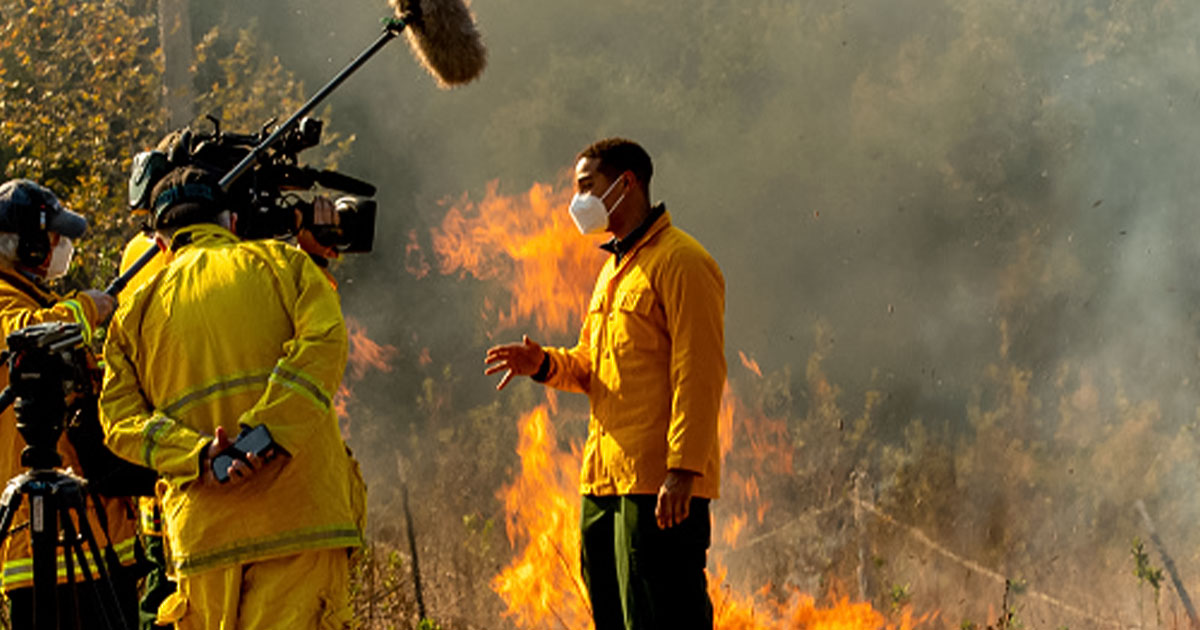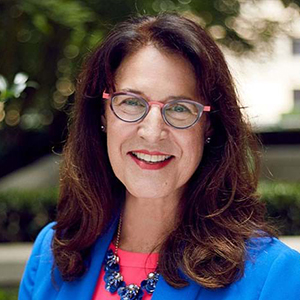

To Support Press Freedom and Our Planet, Take A Stand For Truth
Photo by Allen J. Schaben / Los Angeles Times via Getty Images
As CEO of a global communications agency, I believe in the power of a free press and the safety of journalists. At the forefront for me this World Press Freedom Day is the link between press freedom and climate change, and the role we can play in standing up for journalists.
Journalists have always been a shining light, particularly in the past two years. In seeking and sharing the truth from boardrooms to war zones, journalists give us the stories we need to move forward and create change, often doing so at serious personal risk. I deeply respect photojournalists who run toward danger — not away from it — to capture the images that tell a thousand stories. Journalists of all kinds are among the bravest people I know, and I’m grateful to call many my friends.
World Press Freedom Day’s call for governments to respect their commitments to press freedom and the safety of journalists is an urgent one. This year’s theme, “journalism under digital siege,” is a reminder that journalists are attacked in digital and physical spaces.
According to UNESCO, a journalist is killed every five days on average for bringing fact-based information to the public. In 2021 alone, 55 journalists were killed for bringing truth to the public, often without consequence for the killers. It’s a statistic that, while lower than previous years, is still horrifying.
Environmental Journalism is Increasingly Under Threat
As climate change has risen to become the most urgent issue facing our world, so too has blowback against journalists covering environmental issues. They are increasingly targeted, harassed and killed.
The Committee to Protect Journalists (CPJ) estimates that 30 environmental journalists were killed since 2009 and stated covering the environment in developing countries is the “second most dangerous beat” a journalist can work after covering armed conflicts.
It's devastating to read stories of journalists being killed for reporting essential stories on everything from illegal sand mining to pollution caused by oil companies. These are vital issues that touch all of us.
The grave danger to journalists also creates a chilling effect. Journalism about our planet is one of the most important tools we have to help educate the public on climate change and what we can do about it. But the more journalists are targeted, the more we lose their essential stories and voices.
Like Journalists, We Need to Stand for Truth
So, what should we do to answer the call of World Press Freedom Day and support a more sustainable future? We may not be able to fight every threat to journalists firsthand. But as I’ve said before on this occasion and is still true today, we can channel journalists’ courage and stand for truth, backed by meaningful action rooted in purpose.
Mis- and disinformation about climate change is rampant, a fact that aligns with our own research on the challenges businesses face in advancing sustainability programs. Journalists play a key role in helping combat it, and businesses should play a part too. They can devote resources to tackling misinformation with their employees, convening conversations, and educating broad sets of stakeholders on the costs and benefits of accelerating sustainability programs. It’s encouraging to see more organizations investing in climate change education for their people, and I believe those efforts can and should engage the journalists telling environmental impact stories.
We also must take action in our own lives, as humans first. With our voices, we can stand for truth by supporting the people and organizations protecting journalists around the globe.
When I think about the future of our planet, I think about my children’s children (who aren’t born yet) going to all my favorite places of beauty, serenity and adventure. It reminds me that even though advancing our commitments to truth may not seem like enough in the moment, it is deeply important. I truly believe it will accrue to something greater: a culture where journalists’ lives are protected, their profession is respected, and all our favorite places are here for future generations to enjoy.
The latest blogs from WE
Decoding Gen Alpha: A Primer on the Next Gen of Consumers
Why Gen Alpha Will Fuel Spending This Season
Why Reputation Is a Business Driver in Healthcare


